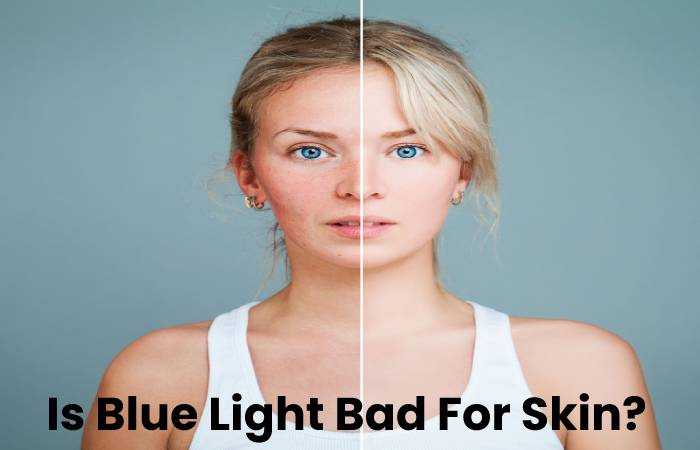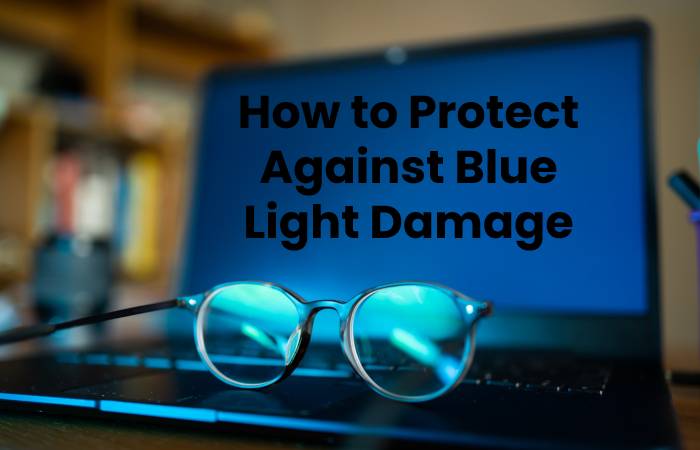Does Blue Light Impact Your Skin – Can blue light damage your skin? It is what the dermatologist says. Blue light from your mobile phone or laptop can damage your skin. Here’s how to protect yourself.
You’ve probably heard of many concerns surrounding exposure to blue light. Blue light from laptop and phone screens can cause eye strain and make it difficult to fall asleep, so many people invest in blue-blocking glasses to mitigate some of the effects. Will be. However, many may not consider the effects of blue light on the skin.
As screen times increase, experts are concerned about the effects of blue light on the skin and whether the screen can damage the entire face, not just the eyes. Forty-three per cent of adults have jobs that require the use of tablets or computers.
Decades after the technological revolution, science shows that the light from our favourite devices can be stronger than we imagined. It is what experts say.
Table of Contents
What is Blue Light?
Before we know what Blue Light does or doesn’t do, we probably need to know what it is. Before the advent of Blue Light Glass, we didn’t know what Blue Light was. I wasn’t worried about how it would affect my health and skin. “Blue light is a spectrum of visible light with a wavelength of 500-600 nanometers,” said Dr Loretta Sirald, a dermatologist and founder of Dr Loretta’s skin care. “The three maximum communal sources of blue light are the sun, numeral screens, and skin care strategies.”
Much research has not been done on the effects of blue light on the skin, but scientists are noteworthy given that the sun emits more blue light than the combination of UVA and UVB rays. Is starting to do, Dr Ciraldo explained. Blue light has been studied to cure acne because it kills acne-related skin bacteria and affects eye health (hence the importance of light blue glass when always in front of the screen). There is sex).
Is Blue Light Bad For Skin? – Does Blue Light Impact Your Skin
Research on blue light and skin damage is a relatively new area of research.
According to the National Cancer Institute, new research shows that blue light can cause the production of reactive oxygen species. Reactive oxygen species are unstable molecules that contain oxygen and react with other molecules. These unstable molecules damage skin cells and accelerate ageing by breaking down collagen and elastin.

How Does Blue Light Affect Skin?
Studies have shown that blue light can affect the skin, primarily in people with melanized skin or dark spots. According to a study by the Journal of Investigative Dermatology, blue light causes more redness, swelling, and over-pigmentation when human volunteers are exposed to blue light and UVA light in the same proportions obtained from the sun. However, it occurred only in more profound subjects skin tone.
Another 2018 study found that exposure of skin cells to blue light under controlled conditions activates enzymes that break down collagen. Therefore, it is known that loss of collagen can cause fine lines and wrinkles, so it can be inferred that prolonged exposure to blue light could lead to faster wrinkles.
“There isn’t enough research to know how much the effects of blue light from digital devices can tolerate before they become dangerous. However, by wearing a blue light filter glass and doing skin care at all times, blue light It’s safer to protect yourself from the sun. You’re in front of your computer or the sun for a long time. ”
How to Protect Against Blue Light Damage
Sunscreens are the first choice, but not all sunscreens protect us from blue light like UVA and UVB rays. “Physical sunscreens containing titanium dioxide and zinc oxide help reflect light rays and provide a wide range of protection against high-energy UV and visible light,” said a nutritionally certified functional medicine doctor. Dr. Kerian Petrucci, a consultant, said. Iron oxide is also an excellent physical blocker reflecting visible light, including blue light.

Other Tips Include:
Wear blue light-blocking glasses, at least to protect your eyes and the delicate skin around them.
Always enable night mode on all devices to reduce blue emission and soften yellow or orange light. You can also buy a blue light shield for your computer like this from Ocushield.
Use SPF daily. Sunscreen is the best protector against photoaging and skin damage, as the sun is the most crucial source of light and radiation—zinc oxide–possibly. Coloured sunscreens often contain iron oxide that increases the spectrum of blocking light, which can provide additional protection.
